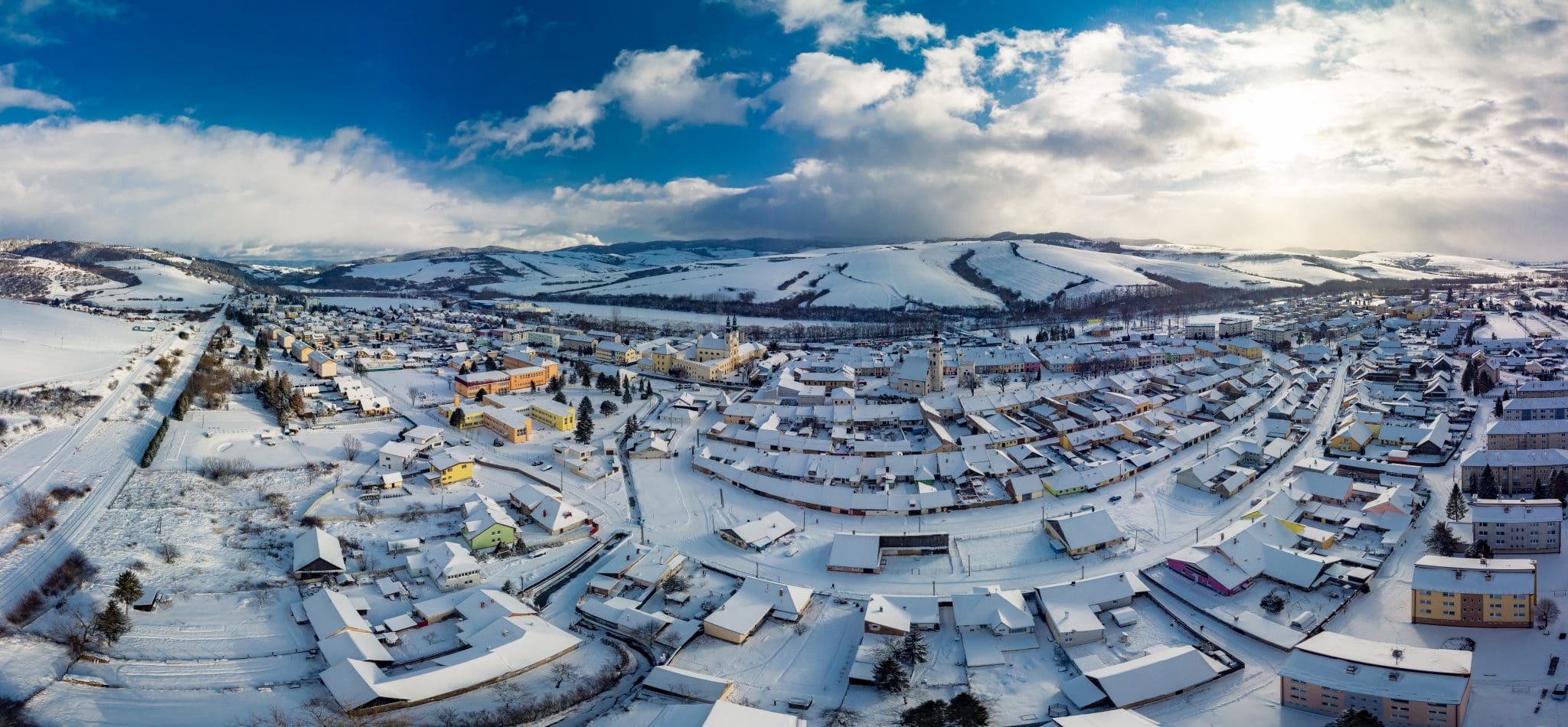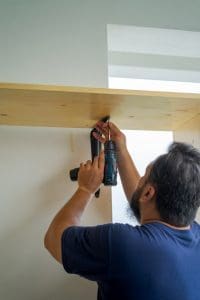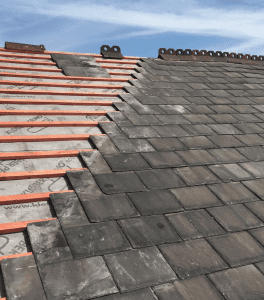As the days grow shorter and temperatures start to drop, it’s time to get your home ready for the cold winter months ahead. Winter brings its own set of challenges, and preparing your home in advance can save you time, money, and effort. From making sure your garden is frost-proof to checking the condition of your roof, there are several key tasks that will ensure your home stays cosy, safe, and efficient all winter long. Here’s a detailed guide on how to prepare your home for the coming season.
1. Winter-Proofing Your Garden
Frost, snow, and chilly winds can wreak havoc on your garden if you don’t take the right precautions. Here’s how to get your garden ready for the winter months:
- Protect Your Plants: If you have delicate plants that are sensitive to frost, consider bringing them indoors or placing them in a greenhouse. For plants that remain outdoors, add mulch to insulate the roots and cover them with protective fabric or cloches.
- Clean and Store Garden Furniture: Wooden or metal garden furniture should be cleaned and treated to prevent damage from moisture. If possible, store furniture in a shed or garage, or at least cover it with waterproof covers to protect against the elements.
- Tidy Up Garden Beds and Borders: Clear away dead plants, fallen leaves, and other debris that can trap moisture and encourage pests and diseases over the winter. This also helps to make space for new growth in the spring.
- Prepare the Lawn: Give your lawn one final mow before the first frost, and aerate it to improve drainage during wet winter months. Applying autumn fertiliser will strengthen the grass roots, making your lawn more resilient in the colder weather.
- Drain Garden Hoses and Water Features: Drain garden hoses and store them inside to prevent them from freezing and cracking. If you have a pond or water feature, ensure that pumps and pipes are also drained or insulated.
2. Roof Checks and Gutter Maintenance
Your roof is one of the most important parts of your home to check before winter arrives. A well-maintained roof will keep your home insulated and protect against leaks during rainy or snowy conditions.
- Inspect Your Roof: Start by visually inspecting your roof for missing or damaged tiles or shingles. Even small gaps can allow moisture to enter, which can cause leaks and even structural damage over time. It may be wise to hire a professional to conduct a more thorough roof inspection, especially if your roof is difficult to access.
- Clean Out Gutters and Downspouts: Leaves, twigs, and other debris can quickly clog your gutters, leading to water build-up and possible leaks. Before winter, clean out all gutters and check that your downspouts are directing water away from your home’s foundation.
- Check Roof Insulation: Heat loss through the roof is a major factor in high energy bills during the winter months. Ensure that your roof space is adequately insulated to keep the warmth in and the cold out. Upgrading your insulation could make your home more energy-efficient and save you money on heating.
3. Gas Checks and Boiler Maintenance
Your boiler and heating system will be working overtime in the winter, so it’s essential to ensure they’re running efficiently and safely.
- Get a Boiler Service: Annual servicing by a Gas Safe registered engineer will check for any faults, ensure that your boiler is operating safely, and make any necessary repairs. This will reduce the risk of a breakdown when you need your heating the most.
- Bleed Your Radiators: Air trapped inside your radiators can reduce their efficiency, leaving parts of your home colder than others. Bleed your radiators to release any trapped air, ensuring they heat up evenly.
- Check for Carbon Monoxide: As a precaution, install a carbon monoxide detector near your boiler or gas appliances to protect your household from potentially dangerous leaks.
4. Carpets and Soft Furnishings
Winter is the perfect time to get your carpets and soft furnishings in order, making your home feel cosy and clean.
- Deep Clean Carpets and Rugs: After months of use, your carpets and rugs will benefit from a deep clean to remove dirt, allergens, and any built-up odours. This is especially important before winter, as you’re likely to spend more time indoors. Clean carpets will help improve indoor air quality and keep your home feeling fresh.
- Check for Draughts Around Windows and Doors: Winter winds can sneak through tiny gaps around windows and doors, leaving your home chilly. Add draught excluders or reseal windows and doors to keep warm air inside.
- Switch to Heavier Curtains: If you haven’t already, swap your lighter summer curtains for heavier, insulated ones. Heavier curtains help to keep the cold out and retain heat in your rooms, making a noticeable difference in your heating bills.
5. Oven Cleaning and Kitchen Readiness
With winter comes more indoor cooking, including holiday feasts and hearty meals. Before the cooking marathon begins, make sure your kitchen is ready to take on the challenge.
- Clean the Oven: A clean oven heats more efficiently, which is especially important when cooking large meals during the holiday season. Grease and food debris can also become a fire hazard, so give your oven a good clean before the winter months.
- Check Kitchen Appliances: Check that your kitchen appliances are working correctly, especially your fridge and freezer, which may work harder in cold weather. This is also a good time to defrost your freezer and clean it out to ensure it’s ready for the holiday food supply.
You can hire a reputable oven cleaner for little cost to take care of this for you professionally, such as Gleaming Oven Cleaning.
6. Chimney and Fireplace Safety
If you have a working fireplace, winter is the time to give it some attention so you can enjoy those cosy fires safely.
- Clean and Inspect the Chimney: A dirty chimney can be a fire hazard, so ensure it is swept and inspected before lighting any fires. Creosote build-up inside the chimney can lead to chimney fires if not removed.
- Check the Fireplace: Check the condition of your fireplace and flue to ensure it is safe to use. If you use a wood-burning stove, ensure that it’s also cleaned and inspected by a professional.
7. Winter Survival Kit
Prepare for unexpected winter emergencies by putting together a winter survival kit. This is especially important if you live in an area prone to heavy snow or power cuts.
- Prepare for Power Outages: Stock up on essentials like torches, batteries, blankets, and non-perishable foods in case of a power cut. Keep a battery-operated radio on hand for important weather updates.
- Stock Up on Supplies: Make sure you have sufficient salt or grit for icy pathways, and check that your snow shovel is in good condition. It’s also wise to have emergency supplies of bottled water, especially if there’s a risk of frozen pipes.
By following these winter-preparation tips, you’ll be better equipped to keep your home safe, warm, and running smoothly during the colder months. Taking a few preventative steps now can save you from costly repairs and unexpected breakdowns in the middle of winter, allowing you to enjoy a stress-free and comfortable season.




